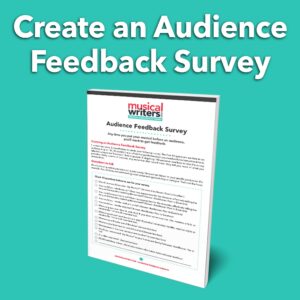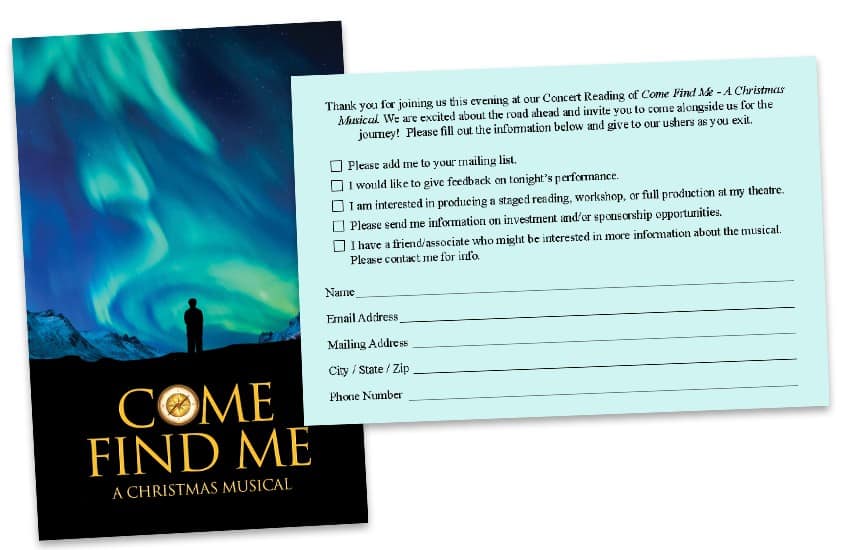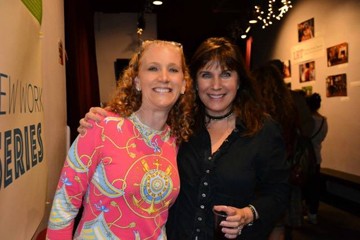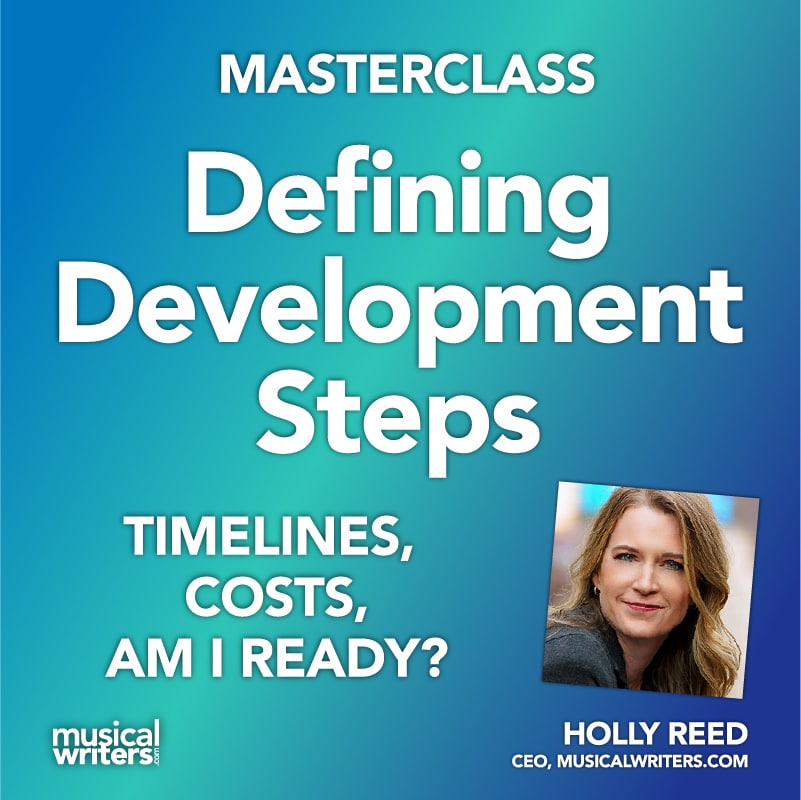Any time you put your musical before an audience, you are going to want to get feedback. Whether it’s a table read in your living room or a premiere production, your audience as well as your performers can provide essential insight into what works and what doesn’t.

Download this worksheet to help create your own Audience Feedback Survey!
Creating your Audience Feedback Survey
I would recommend using SurveyMonkey to create your follow-up survey. The first 10 questions are free to an audience of up to 100. As you can see below, 10 questions should be sufficient to get the feedback you need. It also keeps the actual time of taking the survey under 5 minutes. That’s important. And getting 100 audience members to take the survey is a great accomplishment and provides a sufficient volume of opinions. Any more than that would most likely tell you more of what you already know.
Audience Feedback Surveys: Questions to Ask
Many of you have asked about content for audience feedback surveys, so here are samples of questions I send after developmental performances. Some are tweaked depending on the production. For example, I recently produced a concert reading of our musical Come Find Me. Because this was mainly musical selections and we didn’t present much of the script, most of the questions were focused on music and lyrics.
- Overall, how would you rate “Your Musical Title“? (Answer checkboxes: Poor to Excellent)
- How would you rate the music? Were they appropriate for the character, effectively telling the story, and adequately capturing the moment? (Answer checkboxes: Poor to Excellent)
- How would you rate the lyrics? Were they appropriate for the character, effectively telling the story, and adequately capturing the moment? (Answer checkboxes: Poor to Excellent)
- How would you rate the book and script? (Answer checkboxes: Poor to Excellent)
- How would you rate the storyline? (Answer checkboxes: Poor to Excellent)
- What song was your favorite and why? If you don’t remember the title, mention a lyric or describe the moment. (Answer text box)
- What song was your least favorite and why? If you don’t remember the title, mention a lyric or describe the moment. (Answer text box)
- What was your favorite part of the show? (Answer text box)
- What was your least favorite part of the show? (Answer text box)
- What moment in the show was most memorable? (Answer text box)
- Would you recommend “Your Musical Title” to your friends and family? (Answer checkboxes: Yes or No)
- Any other comments? (Answer text box)
- We’d love to keep in touch. Enter your contact information below. (Answer text box)
Sending Out Your Survey
At our concert reading, I used 3 methods to ask the audience to take our follow-up survey.
First, we sold tickets through BrownPaperTickets.com (great ticketing site by the way). Purchasers entered their email address on checkout, so I exported those and sent an email with the link to our survey after the performance.
Second, I put a personal letter on the first page of our concert program inviting the audience to give us their feedback after the show. I directed them to a page on our show’s website that had the link to the survey. That way they went to our site first (and could look around). It also was easier for them to type in “www.mymusical.com/feedbacksurvey” instead of the actual link to SurveyMonkey, which was a long string of numbers and letters.
Finally, we also printed a guest information card that was inserted into the program (see image to the right). We did have several audience members who bought paper tickets directly from us, so we didn’t have their contact information beforehand. After our final remarks letting the audience know how much we valued their being a part of our development, we invited everyone to fill out the card in their program and give to an usher on the way out. We then added those contacts into our email list and sent them the link to the survey.
What to Do with the Results
Like armchair quarterbacks and backseat drivers, audiences always think they know what does and doesn’t work about your show. A good rule of thumb is to only pay close attention to responses that occur more than three times. If three different people say it, it’s worth listening to. One rogue comment doesn’t have to derail you. This will be the beginning of a long road of criticism ups and downs, and you’ve got to be able to decipher what’s worth listening to or you’ll go down in a blaze of self-doubt. This is YOUR show, so stick up for the things that are important to you. But consider what others have to say, especially if there are more than a few saying it. It will save you money, time and heartache down the road!



















